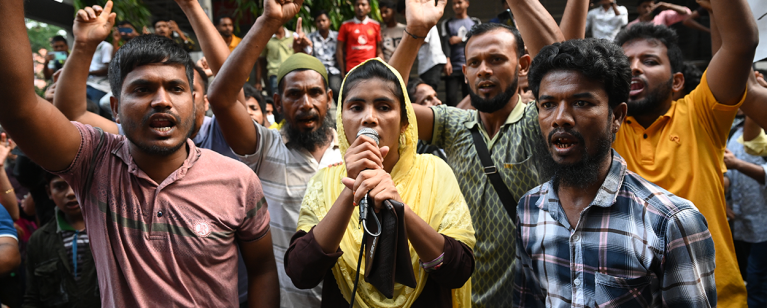
The context
Since July 2024, Bangladesh has experienced significant civil unrest, political upheaval, and devastating floods. These overlapping crises have disrupted the country at large, severely impacting garment supply chains and increasing human rights risks for workers in the RMG sector. When crisis hits — whether due to conflict, political instability, or extreme weather — meaningful stakeholder engagement (MSE) becomes more challenging: how can we engage with those affected without diverting crucial attention and resources from the crisis response?
The value of Collective MSE efforts during crisis
Effective human rights due diligence (HRDD) depends on meaningful engagement with affected stakeholders to inform timely and relevant actions. Amid the political and climate disruptions of 2024, the Ethical Trading Initiative (ETI) and ETI Bangladesh facilitated collective MSE involving international brands, trade unions, civil society, and manufacturers. The aim was to support businesses to integrate human rights considerations into their decision-making processes and crucially, to ensure a coordinated approach, even in a volatile context.
In practice, dialogue between local stakeholders and international brands was maintained through
- Direct outreach to 60 factories to assess the impact of the crisis on manufacturing operations and supply chains.
- Engagement with rightsholder representatives, including structured collective meetings between trade union leaders, industry associations, and brands, enabling affected groups to voice their concerns and priorities.
- Consolidation of insights from these engagements into actionable industry recommendations for responsible business conduct and hHRDD during the crisis.
- Feedback loops with rightsholders, particularly through consultations with trade union leaders, to validate whether the recommendations addressed the risks and priorities they had communicated.
A coalition of 10 multi-stakeholder initiatives (MSIs), industry bodies, and trade unions adopted the final recommendations. This collective endorsement was critical in aligning responses across the sector, reducing consultation fatigue and pressure on local stakeholders.
This case highlights the critical role that a collective approach to MSE can play, especially during a crisis, where meaningful stakeholder engagement becomes more challenging, but even more essential. Through a collective approach facilitated by ETI and ETI Bangladesh, companies and brands were able to engage directly from suppliers and trade unions and coordinate an aligned response –reducing engagement fatigue and duplicative efforts.
